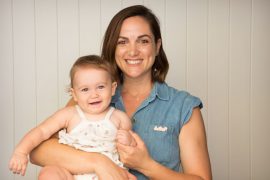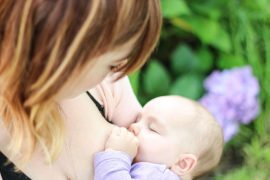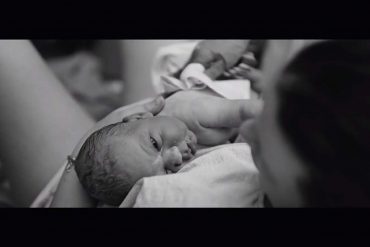Breast milk still provides significant nutrition
For as long as your little one continues to breastfeed your milk will continue to provide significant nutrition and immunity factors. What’s more is that the composition of your breast milk continually changes to meet his developing needs. In fact in baby’s second year just 448ml a day of breastmilk alone will provide:
- 29% of energy requirements
- 43% of protein requirements
- 36% of calcium requirements
- 75% of vitamin A requirements
- 76% of folate requirements
- 94% of vitamin B12 requirements
- 60% of vitamin C requirements
Source: Dewey KG 2001, Nutrition, growth and complementary feeding of the breastfed infant. Pediatr Clin Nth Amer 48:87-104.
Of course your little one will be gaining much of his nutrition from solid foods by the time he’s one, but breastmilk continues to be a valuable part of his diet.
Continued immunity and growth support
A child’s immune system is still not fully developed by one year of age. When your little one is ill, you are the one they want. And when they’re not interested in eating or drinking, giving your breast provides soothing comfort and your breast milk provides much-needed hydration and viral immunity. In fact the concentration of immune factors increases in the second year and although your child will still experience illness it will be less frequent and of a shorter duration than in their peers.
Breastfeeding your toddler benefits you too!
Yes! It’s true! There are many health benefits you can enjoy with continued breastfeeding:
- The longer you breastfeed the greater the protection against breast, ovarian, uterine and endometrial cancers and osteoporosis later in life. And the benefits are cumulative – so whether you breastfeed 2 babies for 2 years each, or 4 babies for 1 year each, the health benefits to you are the same.
- Post-baby weight loss (I know – this works better for some than others!)
- Diabetic women are able to maintain more stable blood glucose levels so that they need less insulin.
- Delay in the return of your period. Exclusive breastfeeding suppresses ovulation but as your baby gets older and his feeding becomes less frequent your hormone levels will adjust and ovulation will return. It’s therefore not necessary to wean when you’re ready to plan for another child.
- Breastfeeding can have a calming effect for you at the end of a busy day (except at those times mentioned about when your little one has gymnastic moves in mind).
- Consider tandem feeding your toddler and your newborn. Your milk will revert back to colostrum just prior to your new baby’s birth which your toddler can also benefit from. And think how your beautiful breastfeeding toddler can help you to avoid day 3 engorgement when your milk comes in again!
So the next time someone questions you, offer some of these amazing facts. Try not to let the opinions and comments of others sway you. Breastfeeding beyond baby’s first birthday is normal. Be confident in your decision to continue to breastfeed and enjoy the benefits for as long as you and your baby choose to.
Rowena Gray is a mother to 3 young daughters, nurse, midwife and International Board Certified Lactation Consultant (IBCLC) and has been both a consumer and giver of copious amounts of breastfeeding advice! She is the author of ‘Born to Breastfeed – the first six weeks and beyond’ available in bookstores and online. Rowena has a private Lactation Consultant practice in Melbourne, Australia. www.rowenagray.com.au










